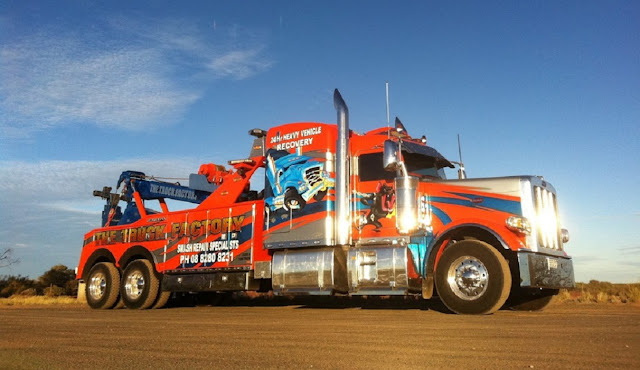In case your truck has suffered a collision and cannot be driven safely, there is every possibility that you will have to reach for your phone and search for 'tow truck near me. Calling the towing service is not enough as you need to know what to expect on arrival, especially to take your truck to the repair shop. To help avoid sticky situations while the towing is being done, you can note the following things.
1. Calling your Insurance Company
As soon as your truck has broken down, you need to call your car's insurance company, even outside business hours. The insurer on the other end is equipped to tell you what to do next and guide you on reasonable towing rates. They will also ensure that no unnecessary delay is caused in your car's repair. If you can't reach them, you can always call someone else to tow your car.
2. Determine if Towing is Required at All
If you have been in an accident, your first thought will be to have your car towed. But there is always a chance that you might be able to drive your vehicle yourself to a safe place. If your vehicle doesn't have any fluid leak, your mirrors are intact, your steering and brakes are working fine, and if your hood still closes securely, then you do not need to call a towing service at all.
3. Prepare your Truck Before Towing
Before your vehicle is towed, make sure to take detailed photos of the collision scene and the damage, as well as the inside of the vehicle. Also, check if you have removed all necessities and valuables from the vehicle before giving it away to the tow truck driver.
4. Talk to the Driver.
You can tell them exactly where you want your truck to be dropped off. It could be either at the insurance company's repair facility or the one of your choosing. You are in charge and have the right to pick who tows your vehicle and where you want it dropped. Any reputable tow truck service will never push you to let them take your vehicle to a specific location unless the police have asked them to do so.
5. Review the Paperwork
Before you sign anything or make a payment, make sure that you have read the paperwork that the tow truck driver has provided you. They usually give their customers an itemized invoice for review and never a work order or a blank contract. You also have to see if they are charging you to tow the truck to the location of your choice and not to have it repaired by any particular facility. You should never sign a contract that does not outline the charges incurred or the location of the repair facility.
6. Check the Cost
Apart from the points mentioned above, you also need to ensure that the cost quoted is reasonable. If you are not sure what it should be, your insurer's claims line can look into some appropriate towing rates for you. Usually, there are standardized rates that the tow truck drivers must stick to, depending on the location of your residence. Also, there can be a maximum upcharge limit. Do your homework and find your local tow rates on the internet if you can't contact your insurance company.
7. Look into the Payment Methods
It always helps in knowing that the customer is never obligated to pay the tow driver in cash. In most locations, towing companies cannot make you pay in cash but have to accept credit cards from a legal standpoint. Beware of people who ask you to pay in cash up front.
8. Save Receipts
Make sure to keep any paperwork or receipt that your driver provides you. You will most likely have to provide it to the insurance company for reimbursement purposes if your policy includes towing coverage.


Comments
Post a Comment